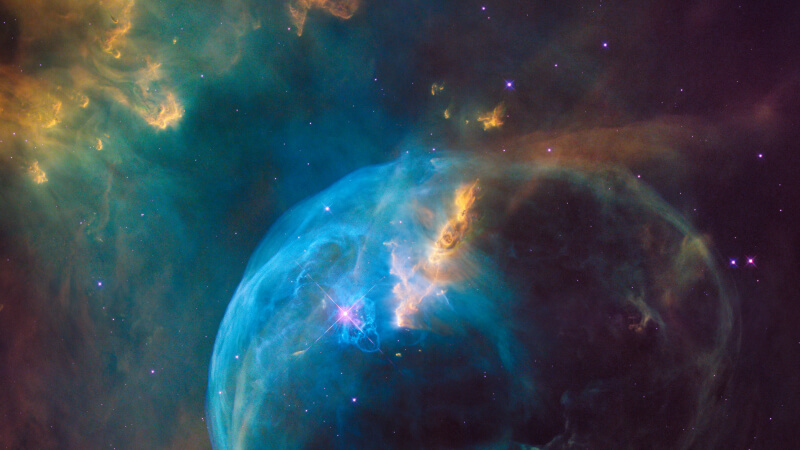Imagine you’re at a party. But not just any party. At this party, it’s you, your ex, and that friend who’s always been a bit of a troublemaker. Now imagine that everyone is under the influence of gravity (and not just alcohol). Can you predict who will end up with whom? That, my friends, is more or less the three-body problem, but in space and without Instagram gossip the next day.
Newton, the First Party Guest
Isaac Newton was the first to delve into this cosmic mess. The guy managed pretty well with two bodies; his theory was the life of the party when it came to describing how an apple falls from a tree (or how the moon doesn’t crash into Earth, which is a bit more relevant though less poetic). But add a third body moving around, and Newton’s laws go out the window. It’s not that Newton was a disaster; it’s that the universe is a bit more party-hard than he thought.
From Science to Netflix and Back
Now, fast forward to the modern era, where “The Three-Body Problem” is not just a headache for astrophysicists but also the title of a Netflix series that turns this gravitational mess into an intergalactic drama. If you thought your love life was complicated, wait until you see the lives of these characters dealing with aliens, government conspiracies, and, of course, gravitational problems that could end civilization. Definitely a reason to stay glued to the couch.
Quantum Qubits Join the Cosmic Salsa
But all is not lost. Enter quantum computing, with its qubits that are like the usual bits, but on steroids. Qubits can be in multiple states at once, thanks to superposition, which is ideal for handling parties of more than two celestial bodies. The idea is that, with these supercomputers, we could predict the behavior of systems as chaotic as a company dinner at Christmas, but in space.
Could Quantum Computing Clean Up the Mess?
Physicists and mathematicians are rubbing their hands with the idea that quantum computing might one day solve the three-body problem. Imagine being able to predict not only how three stars might orbit each other without ending in disaster, but also applying that knowledge to foresee economic crises or extreme climate changes. It would be like having the most accurate crystal ball in the multiverse.
The Future is Quantum (or at Least More Organized)
Though quantum computing is still in its infancy (and very expensive diapers), the potential is enormous. We’re talking about the possibility of unraveling one of the oldest and most complex mysteries of the universe. And in the meantime, we can enjoy series that turn these scientific tangles into top-notch entertainment. Because, at the end of the day, who doesn’t enjoy a good mess, especially if it’s cosmic and you don’t have to clean up the mess?
While real-world scientists rack their brains trying to solve the three-body problem, we can sit comfortably on our couches and watch the drama unfold on our screens, reminding us that sometimes, the greatest enigmas of the universe can also be the best fun. And who knows, maybe one day, thanks to those brainiacs and their quantum computers, we might finally have a roadmap for all the chaotic parties of the cosmos.










